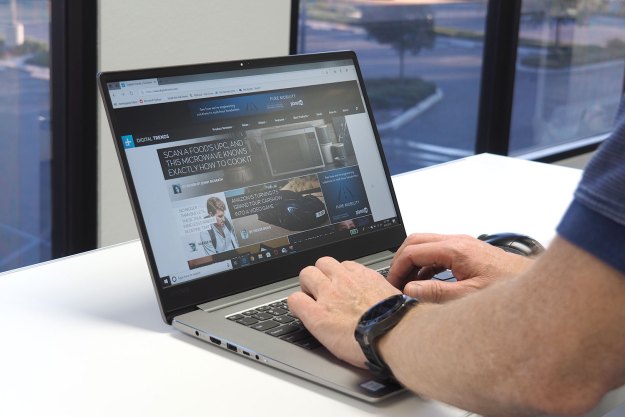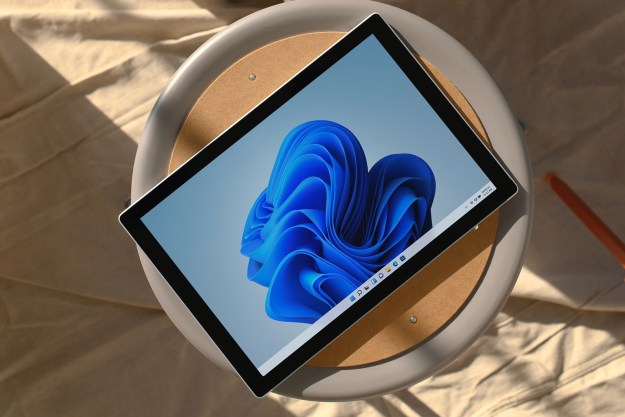
This came just one day after the organization had revealed its new authentication specification, a measure designed to — once and for all — tackle the issue of USB Type-C devices simply not cooperating with, or in some cases proving detrimental to, the computers and mobile devices to which they’re connected.
Compliance and interoperability. Ravenscraft paired these words together a total of five times in our interview, and if you’re familiar with the history of USB Type-C, you may already have an idea as to why.
Deferred compliance
You might already understand if you’re familiar with the Amazon review work of Benson Leung, a Google employee who, as we reported in November of last year, decided to purchase USB Type-C cables en masse, testing each one of them and recording the results. He did so to demonstrate their failure in meeting the specification requirements of the USB-IF, the non-profit organization that oversees support and promotion for the USB interface standard.
Clearly, Leung was trying to draw the attention of companies as reputable as OnePlus, whose own USB Type-C cables were, at the time, “out of spec,” despite coming from a first-party manufacturer.

The problem was so widespread that even Amazon had to take action by unleashing the ban-hammer on some of these faulty USB products. It took the online retail giant until late last month, however, to do anything about it, months after Leung’s reviews had attracted the attention of the press.
“We have our certification and compliance programs,” Ravenscraft said, “and then we have our logo licensing, but authentication … will enable the host and the device to share certificates with each other.”
Unlike the certification program, where developers can choose to have their devices tested by the USB-IF to be rewarded with a seal of approval on the packaging, the new authentication feature is mandatory, and embedded into the hardware itself. It’s what USB Type-C has long needed, not only for compliance, but for protection against malware.
But it’s also something that should have been in place to begin with. USB-IF started on authentication shortly after the launch of the USB Type-C specification back in August 2014. If “compliance and interoperability” were really a priority, perhaps USB Type-C’s target release window could have taken a backseat to making sure the problems Leung highlighted couldn’t happen in the first place.
Now, the USB-IF has to deal with the aftermath of a tarnished reputation, which Ravenscraft compared indirectly to the likes of controversies seen in the automotive industries.
“I know you’ve seen the issues that GM had here a year or so ago, and then the issue that Volkswagon had,” he told us. “You know, some of these types of issues can damage a company’s brand and damage the company severely if they’re not careful with their reliability.”
Unconditioned love
But this respond does not accept that the damage has already occurred. Instead of communicating problems to the public, the committees at USB-IF didn’t take action until after Leung’s work became known. To make matters worse, their president and CEO maintained a harsh stance on Mr. Leung’s work, despite commending him for having “drawn attention to non-compliant USB cables.”
“I think you may have seen some blogs from Benson Leung from Google and so forth where it was like, ‘Oh, well if you want to check this cable, go and do this and that,’ but consumers aren’t really conditioned to try and test their own cable. That just doesn’t work,” Ravenscraft told us.
When asked what he meant by saying consumers aren’t “conditioned” to perform their own USB Type-C testing, Ravenscraft’s reasoning didn’t make a whole lot of sense.
We agree cables should just work. The problem, of course, is that they didn’t.
“The brand promise of USB is ‘it just works’. Consumers shouldn’t have to be concerned with performing tests on cables they’ve already purchased,” he said. “They should be confident in their purchasing decisions that products will deliver whatever capabilities are advertised.”
We agree cables should just work. The problem, of course, is that they didn’t. We’ve already been forced into the role of tester, like it or not. Those administering certification of the cables should be the ones testing, but they clearly weren’t doing enough.
A bright future from a bleak past
Moving forward, USB Type-C has a lot going for it. Ravenscraft informed us of some analyst data from a firm called IHS, who predicts adoption of the new interface to exceed 2 billion products in the next three years. I’m not denying the inevitable success the USB-IF is going to see with Type-C; it’s clearly already on the right path. That said, the rocky start it underwent to get to this point should not go ignored.
There’s something to be said for an organization that can own up to its mistakes rather than condemning someone like Benson Leung, who stood up for the consumer at a time when lackluster specification guidelines led to a pervasive out pour of insufficient products. The USB committee had a chance to take full responsibility, but instead passed the buck. Hopefully they at least learned a lesson, and we’ll see more reliable USB cables in the future.



